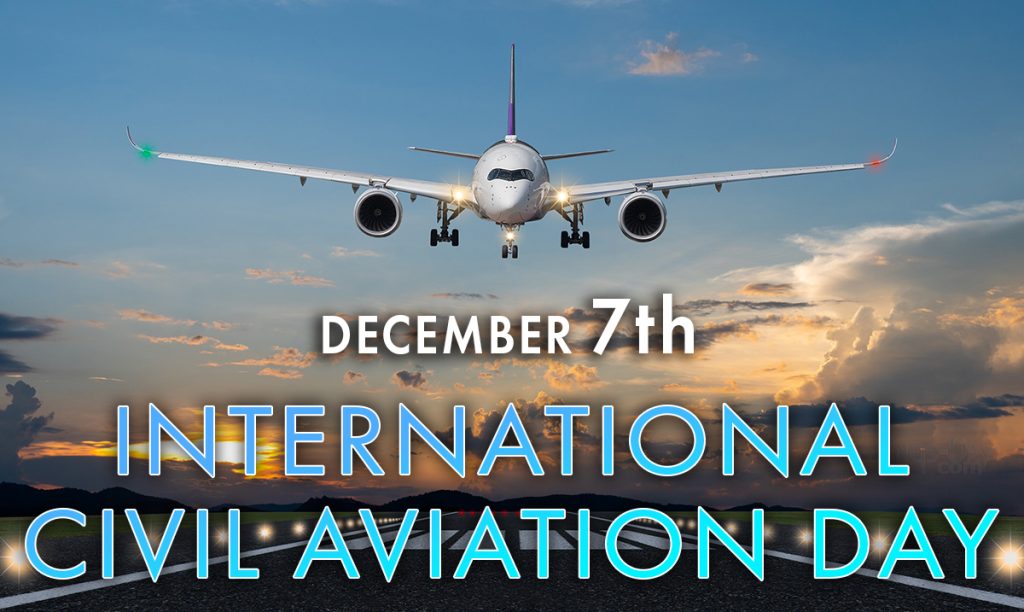International Civil Aviation Day, observed annually on December 7, commemorates the significance of civil aviation in fostering global connectivity, trade, and cultural exchange.
Established by the United Nations General Assembly through resolution A/RES/51/33 in 1996, this day acknowledges the critical role air transport plays in supporting sustainable development, economic growth, and international cooperation.
Civil aviation enables the movement of people and goods across vast distances, bridging cultures, continents, and nations. As a result, air travel has become a key driver of globalisation, facilitating not only tourism and business but also humanitarian aid, medical services, and emergency responses. This day serves as a reminder of the importance of safe, secure, and efficient air transport systems in an increasingly interconnected world.

The observance of International Civil Aviation Day provides an opportunity to highlight the essential contributions of the International Civil Aviation Organization (ICAO), a specialised agency of the United Nations responsible for setting global standards and regulations for civil aviation. Since its founding in 1944, ICAO has been instrumental in ensuring the safety, security, and sustainability of aviation, establishing norms for everything from air traffic control to the certification of aircraft. As of 2024, ICAO’s efforts remain focused on advancing new technologies, improving operational efficiency, and addressing pressing challenges such as environmental impact and climate change.
A major theme for International Civil Aviation Day 2024 is the continued commitment of the aviation sector to sustainability. In recent years, the industry has been under increasing pressure to reduce its carbon footprint and mitigate the effects of climate change. With aviation responsible for a significant share of global greenhouse gas emissions, the transition to more environmentally friendly practices has become a central focus. This includes the development of alternative fuels, more efficient aircraft designs, and the optimisation of flight paths to reduce fuel consumption.
Technological innovations are also central to the future of civil aviation. From the introduction of electric aircraft to advancements in artificial intelligence and automation, the industry is embracing cutting-edge technologies to enhance safety, improve efficiency, and reduce environmental impact. Additionally, ICAO continues to lead efforts to harmonise international regulations to ensure that safety and security standards are met globally, while enabling more seamless travel experiences for passengers.
International Civil Aviation Day also serves to promote awareness about the global challenges faced by the aviation sector, such as air traffic congestion, security threats, and the need for investment in infrastructure. It underscores the importance of international collaboration among governments, industry stakeholders, and civil society to address these issues and shape the future of aviation.
In 2024, the observance of this day encourages both the aviation industry and the general public to recognise the indispensable role air transport plays in modern life. It is an opportunity to reflect on the progress made, celebrate achievements, and reinforce the commitment to ensuring a safe, sustainable, and interconnected world through aviation.
In conclusion, International Civil Aviation Day 2024 is a time to celebrate the vital role of civil aviation in fostering global connections, advancing technology, and supporting sustainable growth. By acknowledging the efforts of organisations like ICAO and the broader aviation community, the day reminds us of the potential of air transport to drive positive change in a rapidly evolving world.


